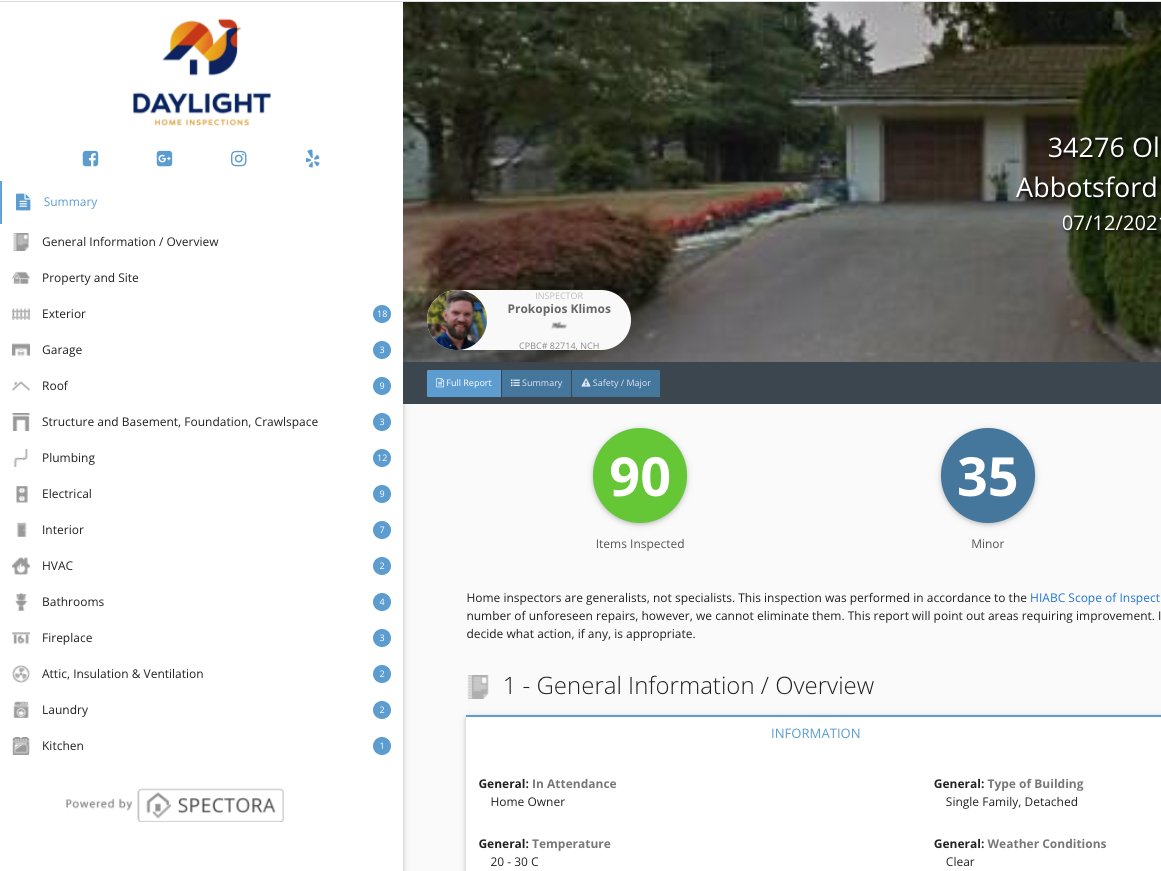
The truth about polybutylene piping
Polybutylene, also known as Poly B, is flexible grey plastic piping that was commonly used in residential homes from the 1970s until about 1995. Poly B piping was viewed as a great residential plumbing material, and an alternative to copper piping, due to it being very inexpensive to produce and easy for plumbers to install.
Polybutylene piping is found in areas—like BC—where residential construction was heavy through the 1980's and early-to-mid 90's. In the Okanagan, typically only homes built between 1978 and 1995 have polybutylene piping in them.

Ice dams explained
An ice dam is a ridge of ice that forms along the edge of a roof and prevents melting snow from draining off the roof. As the snow on the roof melts, the water runs down the roof and refreezes at the edge, forming a dam. As more snow melts, the water builds up behind the dam and can seep under the shingles and cause damage to the house.

Four common questions about inspections
How much does a home inspection cost? Should I get a pre listing inspection? How does a home pass or fail a home inspection? What are the mandatory repairs after an inspection?

Six findings that can kill a deal
Water is a home’s #1 enemy. Worn out components, low-quality piping, and shoddy do-it-yourself (DIY) work are some common plumbing problems that home inspectors find. Problems with plumbing systems can lead to expensive repairs. If the inspection reveals water damage like mold & mildew buildup, rotting, sagging, or flooding, many buyers will walk away.

Get the home inspector in and out of your home quickly!
Accommodating a home inspector can be uncomfortable; They’re a stranger in your home, taking photos in your personal space, and they have a long list of things items to inspect.
Do you want them to do their job and be in and out of your home quickly?

Reading your home inspection report
Getting your home inspection report is one of the highly anticipated moments of the real estate transaction. Before you open the report, take a few breaths and remember that no house is perfect. You’re probably going to find a few surprises, and often there’ll be a variety of findings.
Every home has a story. Here are a few tips as you read your home inspection report:

What’s the top home inspection software?
Home inspector softwares all perform the same basic function (producing a report from inputted data) and many have similar features. The choice of which software home inspectors choose to do their work simply comes down to what they’re used to. Often they get a recommendation from a peer. When they start with a new software there’s a learning curve, but once they get used to it they start to get more comfortable and wind up sticking with it. Ask an inspector if they like their software.

The hazards of being a home inspector
Is home inspection a dangerous career? It can be. While home inspection is definitely not a very dangerous occupation, if you ask any inspector, you’ll probably find they’ve at least suffered a minor injury and have heard of serious injuries happening.
Although inspectors are trained to avoid danger, every home and every day is different, and accidents do happen.

The truth about buried oil tanks
A good home inspector will always advise you: If you’re considering buying a home built in the 1950s or earlier, it’s a good idea to hire a certified oil tank inspector to perform an oil tank sweep of the property. An underground storage tank (UST) specialist will be able to tell you definitively whether or not there is an underground oil tank that could potentially cause you stress or financial burden down the road.

Preparing for inspection day: Be ready for your home inspection
Buying a house is exciting, and it can also be a stressful and complex process. There’s a lot going on, and deadlines usually come quick.
It’s important that you do a bit of research and schedule a home inspection by a trusted, reputable company. Then, follow these steps to make sure you’re fully prepared for inspection day.

Top 20 most common issues found during a home inspection
Based on our experience, we’ve put together a list of the twenty most common deficiencies that we find in homes during our home inspections.
Being aware of the deficiencies we find most frequently in our inspections will prepare you for the sort of things you might come across in your report.

Get your home ready for a home inspection
Home Inspectors decide how well a home has been maintained. If you’re selling your home and a potential buyer has requested a home inspection, there are a few things that you should do to ensure that the inspection process goes well and doesn’t negatively impact the chance of a sale.
Follow these tips so you feel well-prepared for your home inspection and make sure you put your best foot forward as the seller.
